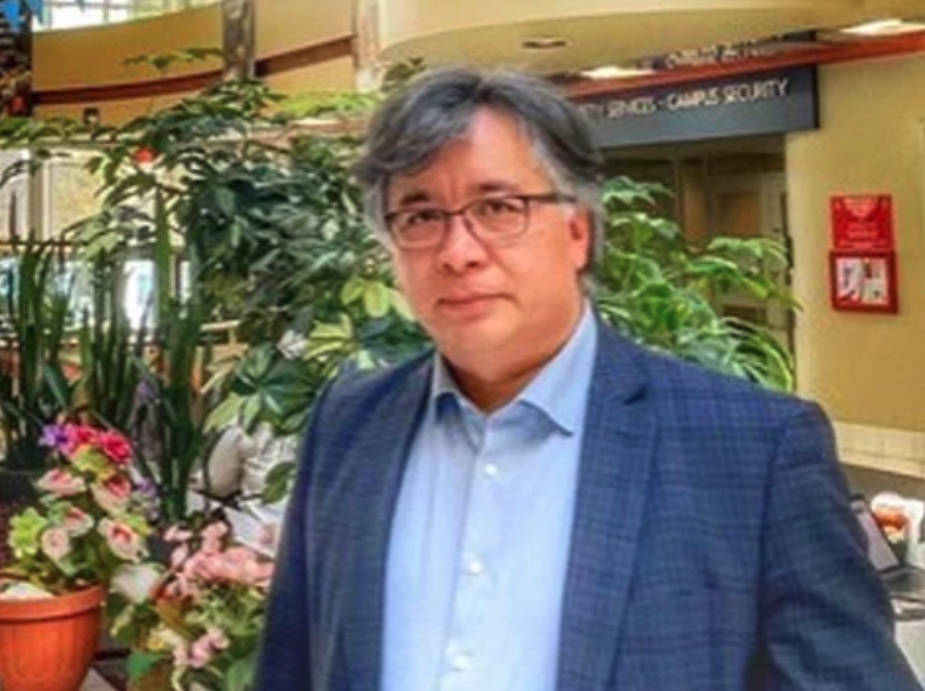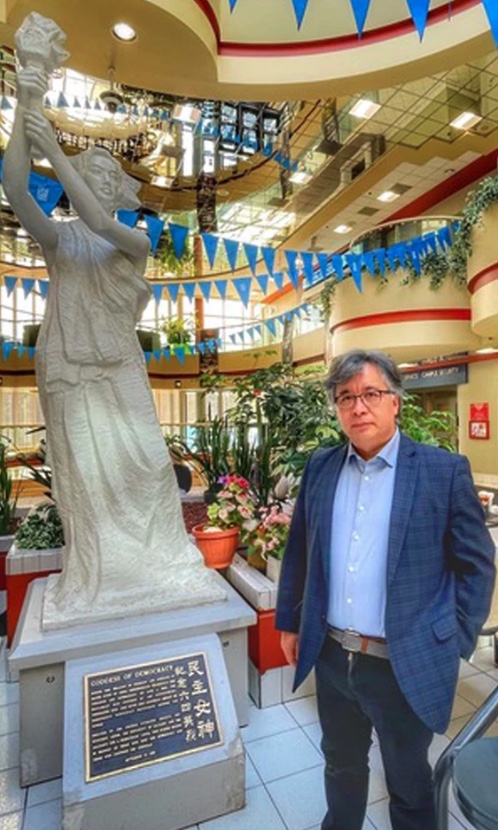Dishing With DKG : This Tibetan-Canadian activist has been sounding the alarm on Chinese interference for years
Dishing with DKG: This is a new conversation series by Donna Kennedy-Glans, a writer and former Alberta cabinet minister, featuring newsmakers and intriguing personalities.
This week: Tibetan-Canadian engineer/activist Nima Dorjee.

Alberta engineer Nima Dorjee is a Tibetan refugee who remains even-keeled and pragmatic when speaking about China. “Credit goes to the Dalai Lama and his teachings; to never being encouraged to hate.”
Photo by Donna Kennedy-Glans
From what I can tell, China has done a superb job intimidating emigres in Canada.
Nobody I reached out to in the Alberta business or research community wants to talk about intimidation by Beijing — on the record — except for one. He’s Nima Dorjee, a Tibetan-Canadian who has been raising the alarm bells for decades now on China’s interference. He has an axe to grind, or maybe an axe to hone.
We agree to meet at the MacEwan Student Centre at the University of Calgary, in front of the Goddess of Democracy. That’s the statute erected by the Chinese Students’ Society, and others, “in memory of those who died for democracy and those who continue the struggle,” a replica of the statue erected by students in Tiananmen Square three decades ago.
Nima and I settle into MacHall’s uncomfortable steel chairs, coffees in hand. Exams loom and students look pensive. In 1989, when the Tiananmen massacre shocked the world, Nima was studying chemical engineering at this campus and had just been elected president of the students’ union. Born in a Tibetan refugee settlement in India, Nima moved to Calgary at the age of 15.
“In 1989, China was not what it is today. China was a very poor country,” Nima explains. Chinese foreign students studying at Canadian universities knew they were privileged to be sent abroad, Nima continues, but many wanted refugee status and were sympathetic to the Chinese democracy movement.
“You wouldn’t see that today,” says Nima. “Chinese born after Tiananmen, looking into the late 1990s, there is a new form of nationalism, Chinese pride. By 2008, there is the Beijing Olympics and a feeling that it is their time.”
Nima is an engineer; in 2018, he was elected president of the Association of Professional Engineers and Geoscientists of Alberta (APEGA). As president of the Project Tibet Society, Nima helped resettle more than 1,000 Tibetan refugees from northern India to Canada (remarkably, with zero public funding). These days, he’s spending time figuring out ways to re-engineer the role of Alberta’s engineering professionals in a brave new world where so much of their work is off-shored.
In his sharing of emotionally fraught experiences, his tone is even-keeled and pragmatic. What does he think of China? “China isn’t much of an attraction or an aversion within my family,” Nima responds. “Credit goes to the Dalai Lama and his teachings; to never being encouraged to hate.” The last time China granted Nima a visa to travel to Tibet was in 1997.
Nima understands the rationale for Canada’s engagement policy with China: “Through engagement, we’ll be able to foster relations and positively influence China.” Hearing the mantra makes me wince; I chanted that line a decade ago, when the Canadian government approved the sale of Calgary-based Nexen Inc., a Canadian energy company where I’d worked, to CNOOC, one of China’s state oil companies.
“It’s one thing to say that through engagement we can positively influence them,” Nima asserts, “By the same token, we can also be contaminated by them.” It’s a harsh conclusion; what’s he mean?
“The issue of Tibet and the Dalai Lama has become controversial,” Nima replies, explaining how the Dalai Lama was granted an honourary degree by the University of Calgary in 2009, at a very low-key ceremony, off campus, with no press release. Notwithstanding, China felt slighted, and removed the university from its list of recognized institutions for a couple years. “Hosting the Dalai Lama is always about hurting the sentiment of the Chinese people,” reports Nima; “They have been using this line forever, pushing our buttons.”
For years, Nima has been tracking how the Communist Party of China deploys WeChat — a social messaging and payments app created by Chinese tech giant Tencent — to monitor and influence behaviours within China. Not only is this the app of choice for most Chinese, but millions of China’s diaspora use WeChat to stay connected to family members. Everyone knows that user data is shared with the Chinese government. Nima’s concerns echo what we’re hearing about TikTok.
Vancouver and Toronto host Chinese consulates, but there’s also been one here in Calgary, “not just because of the diaspora but because of the importance of energy to China,” Nima explains. It’s normal course in business to share intellectual property and know-how with joint venture partners. “What we learned from Huawei,” Nima reminds me, “is could you ever do business with a Chinese company and not be doing business with the Chinese communist party?”
Nima’s not suggesting we embark on a witch hunt. But he’s asking Canadians to think more critically about what we are getting out of these relationships. Immigrants from mainland China in Canada have largely muted themselves. Other Canadians say, “Oh my God, I don’t want to be racist.” And the Chinese government is exploiting that.
No one wants to talk about it, but everyone is talking about it.

Engineer Nima Dorjee in front of the Goddess of Democracy statue in the MacEwan Student Centre at the University of Calgary.
Photo by Donna Kennedy-Glans
Link to original article: National Post
